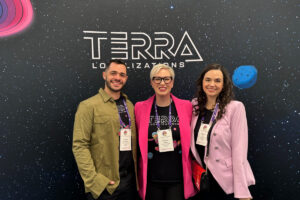As we continue to explore the theme of futureproofing in the localization industry, I’m thrilled to bring in Marcelo Abeldaño, my co-lead on Team Q, Terra’s Localization Quality Assurance (LQA) powerhouse. Marcelo has been instrumental in guiding our team through ever-evolving collaborations with our partners. In this interview, we’ll delve into the strategies that help us futureproof our operations, ensuring we stay resilient and adaptable to rapid changes in technology and market demands. Marcelo’s insights will shed light on how to build a team that not only survives but thrives in the face of uncertainty.
What strategies do you employ to futureproof your team, ensuring it is prepared for sudden market or industry shifts?
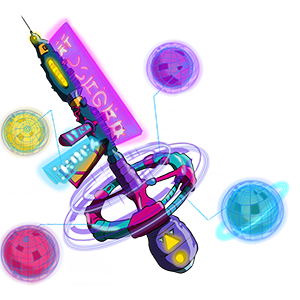
I think the best strategy is to keep your team close to you and outline clear and realistic expectations for the entire team, yourself and each LQA individually. A positive culture based on communication and team-building is vital. You can foster that culture by creating open channels where anyone on the team can reach you and bring up their concerns or suggestions, either publicly or privately; keeping the team in the loop about important matters that will affect their work; being transparent about the context in which the project is unfolding and whether the team is performing in accordance with expectations; offering support in helping to identify the root causes of issues so team members do not feel alone; and keeping an assertive attitude in all exchanges, written or verbal, so everyone focuses on facts and how to help the team move forward and deal with emotions and reactions in a positive way. All this, in my experience, helps build a sense of belonging or at least makes individuals feel like they matter and are a part of something larger than themselves. When people feel supported and heard—and are enthusiastic about their jobs —they are more likely to consider remaining on the team for the long haul.
When new technologies or tools are introduced, how do you assess whether they align with your team’s long-term goals and workflow?
The team’s expertise is key here: knowing the people you work with and identifying team members whose specializations, interests and experience could be leveraged to analyze new technologies, automated processes or modified workflows will help you and your team take advantage of new tools and prepare for a smooth implementation. Getting expert advice, discussing with key members on your team, and looking into the potential pros and cons will help you make an informed decision and continue working towards the goals you have set for yourself and your team.
How do you foster an environment of continuous improvement and adaptability on your LQA team?
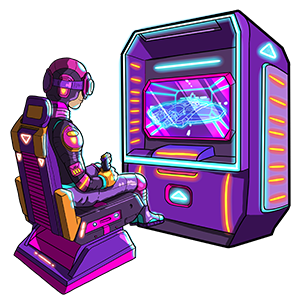
In addition to being focused on a specific target language, which means that our LQAs sometimes get caught up in repetitive processes and work in isolation from other professionals, our team also faces the challenge of being fully remote. No LQA is an island, and ensuring best practices are shared with team members and even across language teams has become a main focus for us. To facilitate knowledge sharing, we created the Champions initiative, which helps our team to grow professionally, learn how to use new tools and standardize workflows. Champions are LQAs who know either a little or a lot about a given matter and become the go-to person for all questions and updates related to their specialty. They not only support their teams by helping them understand tricky or difficult matters but also find the motivation to stay up to date on the latest developments. Another initiative we have is to form special committees or smaller teams tasked with looking into specific challenges, brainstorming solutions and deciding on a course of action, whether the goal is to find and consolidate best practices or coordinate efforts with multiple stakeholders.
Open communication is essential in futureproofing. How do you ensure that your team is kept informed about company strategies and that their feedback is taken into account?
We make regular one-on-one calls with each team leader, and we encourage them to have one-on-ones with their teammates, too. Taking the time to discuss the state of things and how the project is progressing is beneficial for everyone. As a leader, you have an insider’s look at how things are done and what the main strengths and challenges are in your team, so you can provide helpful insights in one-on-one meetings. They are also a great opportunity to have open and honest discussions about expectations. Not only your expectations for your teammates, but also theirs for you. This helps you keep the whole thing as real as possible and gives you a chance to keep everyone informed about the latest news in the company or with the project. Our one-on-one catchups cover the basics: How are you doing (job-wise, of course)? Are there any issues or challenges you are struggling with? Is there any way I can help you with that? Though time-consuming, devoting time to hearing out your teammates really pays off.
We also have dedicated channels on our communication tool to provide updates and announcements to the entire team or specific groups. Whatever way you find to keep everyone in the loop will work, just keep it honest and assertive.
In managing a large, remote, and distributed team, how do you ensure that everyone stays connected and motivated despite physical distance?
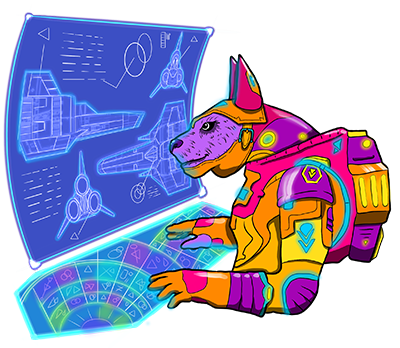
Working far away from everyone else on the team and never meeting them in person, like ever, can also lead LQAs to feel isolated. That is why weekly calls, to discuss tasks or just have a few laughs, are important. By nurturing this shared space, we can help LQAs feel like they are not just workers or employees but also teammates. They can connect with their fellow LQAs and chat about their lives as they would over coffee in a break room or jump into a video game play session and bond over shared triumphs. There is no need to be friends with the people you work with, but it is important for remote LQAs to feel like they belong, and someone’s got their backs. And I guess that loving what you do and feeling motivated by the job is also important, I’d say key, to staying engaged, and it sure helps when working in a remote team.
How do you address potential dissatisfaction within your team, especially when implementing new strategies or changes that not everyone may agree with?
Keeping it real is the way to go. We all create expectations about the future and are resistant to change. But, let’s face it, the only permanent thing in this industry is change, so adaptability and flexibility should be values that we remind ourselves of constantly and turn into our strengths. When frustration levels are high, it’s mostly because changes are abrupt or sudden. If you have time to plan change, you can start asking people to adjust their mindset to what is to come. If you don’t have any heads-ups about change, then your best approach would be to always reinforce with your team the value of being able to cope with change and be prepared for it. Keeping a flexible attitude towards work can prevent people from getting “too used to” the way things are. The best way to approach change is to always expect it.
In terms of operational scalability, what are your biggest challenges, and how are you preparing your team to handle increased demand without compromising quality?
The main enemy of LQAs during peak work periods is burnout. Here are three ways to avoid it:
First, LQAs need to know exactly what is expected in terms of quality for each task and project. Defining the scope of the work is key, so they can use their limited time effectively, focus on what is required and avoid spending more time or attention on things than needed. Sometimes perfectionism gets in the way and leads LQAs to do more than they are asked to do and that can backfire when time is scarce.
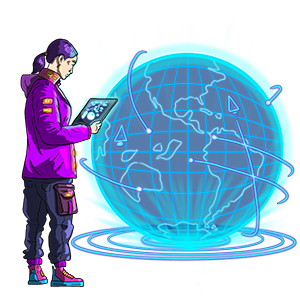
Second, you and your client need to reach a clear agreement on scopes and expectations. Realistic expectations are key during workload peaks and all parties involved need to track progress so issues are flagged on time and solutions can be found or new agreements can be made. This helps avoid unnecessary stress and keeps everyone aware of what is doable and what needs to be adjusted to turn the undoable into doable.
Third, even when you are pressed for time, it is important to take regular breaks to ensure you are as productive as possible throughout your workday. LQAs tend to forget about breaks, and they can go on and on for hours. They feel they need to complete everything and that taking a few minutes to rest is something they can’t afford to do. On the contrary, that only reduces their productivity in the long run. That is why training and encouraging LQAs to use time management techniques, like the Pomodoro technique, and task ranking tools, like the Eisenhower matrix, is important so they can make wise decisions about how to make the most of their day and also plan their breaks in advance to avoid getting exhausted too early.
Looking ahead, what key skills or areas of expertise do you believe will be critical for your LQA team to develop to stay competitive in the next five years?

The main trait we will need to succeed in the future of our business is adaptability. Whether we need to introduce highly advanced AI tools and models into our workflows or even discard our existing workflows altogether and learn or design brand new ones, I would not limit my response to just getting acquainted with every single technological development in the industry. The main skills required to keep up with what lies ahead are: curiosity, to help us look into new things with wide-eyed interest and excitement instead of feelings of uncertainty and fear; agility, to embrace change and reinvent ourselves from scratch if needed instead of trying to remain the same and become outdated; and willingness, to keep an open mind with regard to the future and make change our strength instead of fighting against it.

Marcelo Abeldaño is an experienced English teacher and translator. In 2022, following a successful tenure as a localization project manager at Terra Localizations, he took on the role of LQA support manager. Prior to joining Terra, he worked for 15 years as a freelance translator specializing in technical, educational, and business sectors. Today, Marcelo co-leads and manages a team of over 80 LQA professionals across 13 language teams, with a management style that emphasizes clear communication and agility.


